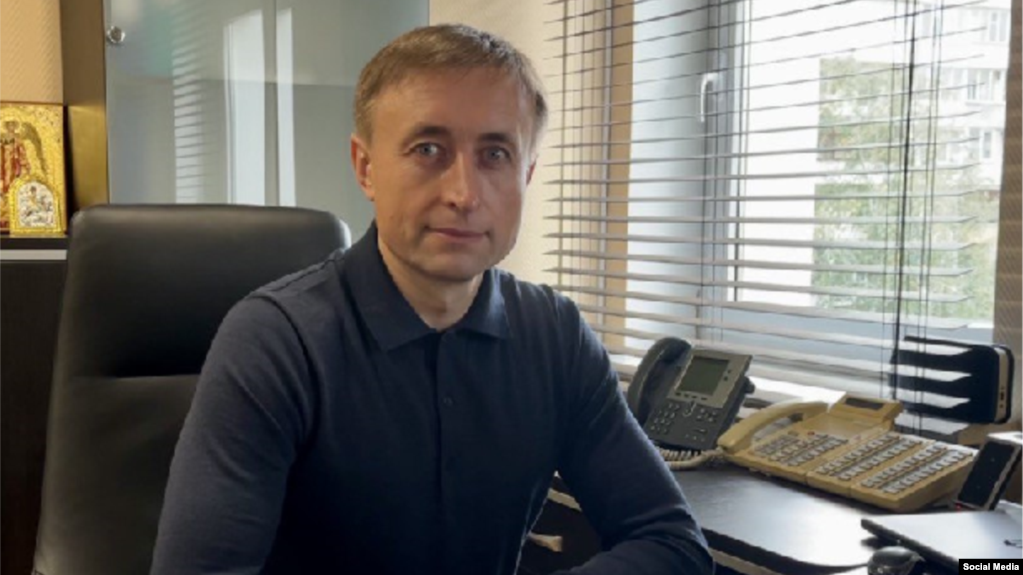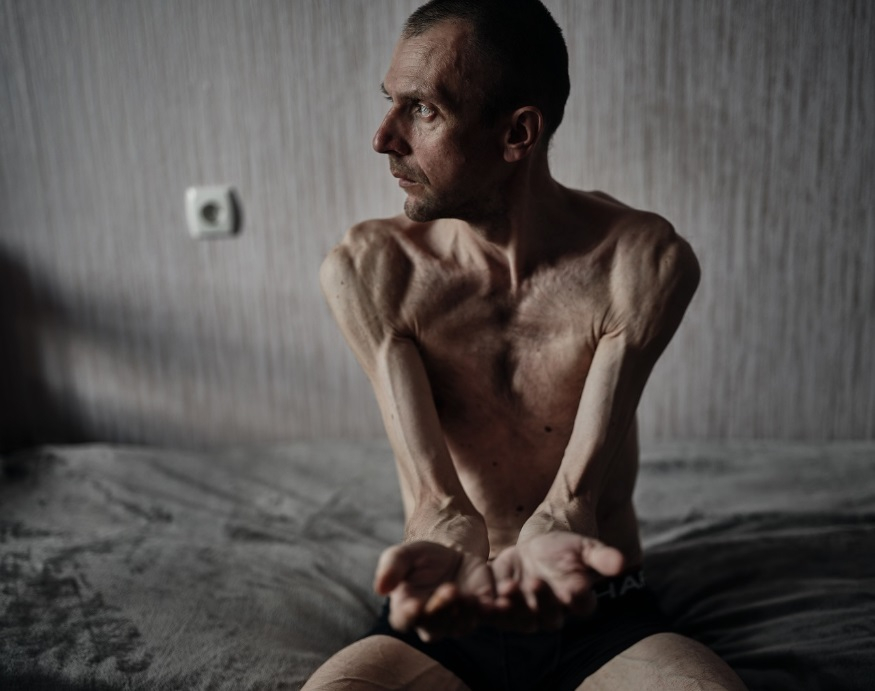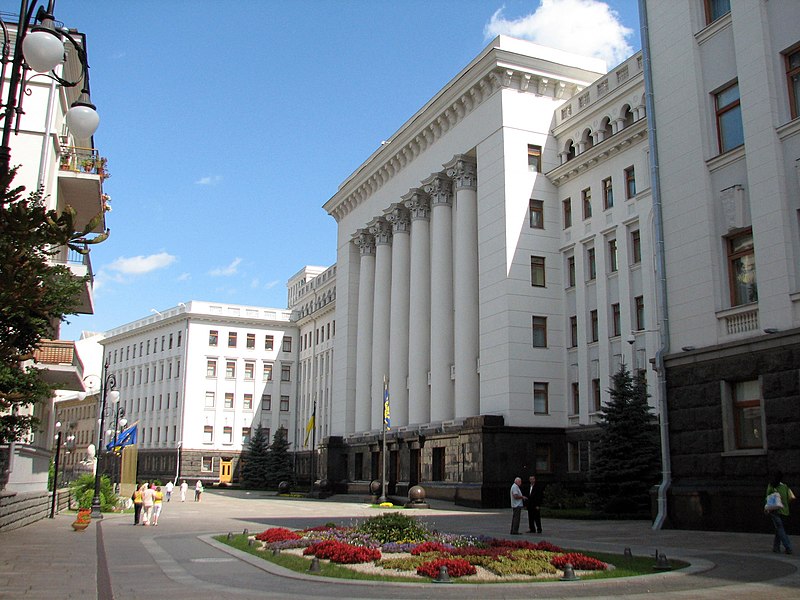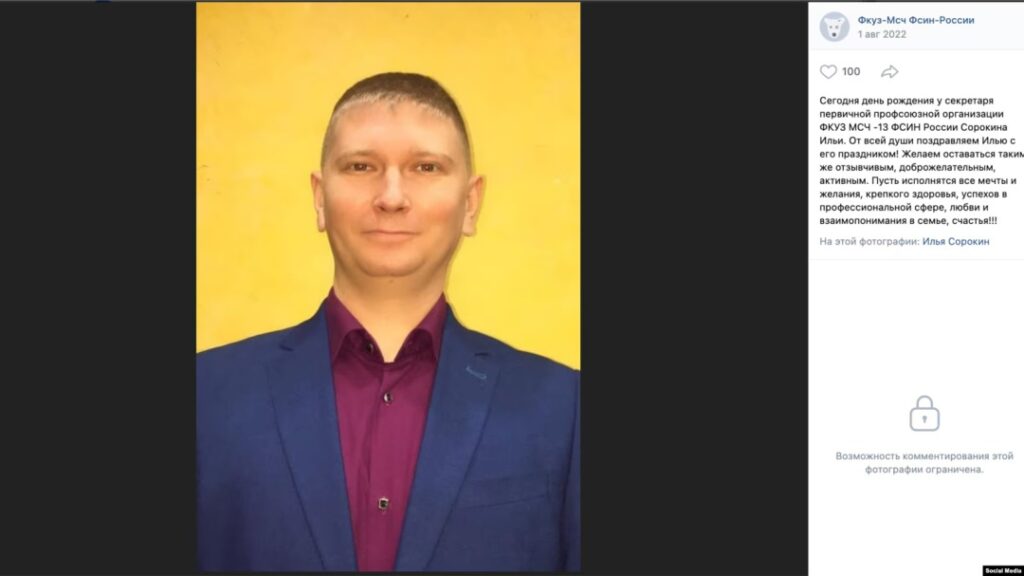‘Clinton Plan’ Emails Were Likely Made by Russian Spies, Declassified Report Shows

© Samuel Corum for The New York Times


© Samuel Corum for The New York Times


RFE/RL reports that the luxury life of customs official has triggered protests after an investigation revealed villas, cars and expensive foreign schooling that far exceed his declared income. The Schemes investigative unit of RFE/RL examined the finances of 44-year-old Anatolii Komar, head of the Ukrainian Customs Service department that manages duties on energy imports and exports.
RFE/RL says Komar’s family has access to luxury real estate, elite foreign education and high-end cars while his official monthly income is about $2,000. His wife Maria declares about $8,000 per month as a tour guide and online course provider, but this sum still cannot cover the expenses shown.
Social media posts reveal their daughter graduating in 2023 from the Pascal English School in Nicosia, Cyprus, with fees close to $30,000 per year. Other posts show her traveling to Venice, Montreux, Dublin and Albania. This year, she appears to be enrolled at King’s College London, where tuition for non-UK students is nearly $35,000 annually.
According to the report, the family does not live in the Kyiv apartment officially registered to Komar in 2021. Instead, they live in an apartment bought by Maria’s father, Serhii Hladkov. Hladkov also built a 450-square-meter house with a pool and staff quarters in February 2025 in the village of Vyshenky near Kyiv. Experts interviewed by RFE/RL valued the property at more than $1 million.
Hladkov and his wife, Lidia, both retired from modestly paid state jobs, later declared self-employment earnings of about $400,000 and $180,000 respectively. Despite this, they have purchased several properties and gifted almost $120,000 to the family. Hladkov told RFE/RL that he had earned the money and then ended the conversation.
Komar has been driving a Mercedes S-class since 2021. He told RFE/RL that the car is rented by his wife and refused to disclose the price. RFE/RL reports that rental companies estimate the cost at $6,000 per month. The vehicle is registered to the Primorskiy Energy Generating Company, which declared only about $14,000 in three years of car rental income, a figure far below market value. The company’s director, Roman Vorobel, refused to answer detailed questions and said he would consult a lawyer.
RFE/RL also found that Komar is president of an amateur soccer club in his hometown of Rokyta. The team is sponsored by VM Groupe, an importer of petroleum products that is under investigation by law enforcement for large-scale tax evasion and by the SBU for importing Russian raw materials.


© Haiyun Jiang/The New York Times


The world demands the truth. International response to Russia’s brutality is growing stronger, as the Netherlands and 40 other OSCE countries initiate an independent investigation into the torture of Ukrainian prisoners of war.
The investigation will be conducted under the OSCE’s Moscow Mechanism.
This mechanism a special formal procedure that allows OSCE participating states to establish short-term international expert missions to investigate human rights violations and humanitarian consequences in a specific region.
Since the start of Russia’s all-out war, this mechanism has been used to document war crimes, the deportation of children, torture of civilians, and widespread human rights violations, reports Ukraine’s Coordination Headquarters for the Treatment of Prisoners of War.
The new investigation will establish facts regarding the torture of Ukrainian POWs, and this evidence will become the basis for convictions in Ukrainian courts, the International Criminal Court, and a tribunal on the crime of aggression against Ukraine.
“He said we deserve genocide”: Journalists unmask Russian “Dr. Evil” torturer of Ukrainian POWs
“The Netherlands and its partner countries are working to uncover the truth and ensure accountability for Russia’s war crimes in Ukraine,” says Dutch Foreign Minister Kaspar Veldkamp.
As noted by Ukraine’s Coordination Headquarters for the Treatment of Prisoners of War, this process is critical to ensuring that no act of cruelty goes unpunished.
Previously, a special OSCE monitoring mission operated in Ukraine to observe the situation during Russia’s 2014 invasion of Donbas. In mid-2022, Moscow blocked the extension of the SMM’s mandate, and the mission ceased operations.
Since then, the OSCE has continued to support Ukraine through other programs, including an extra-budgetary assistance initiative, though without a direct monitoring presence in active combat zones.


© Alexander Nemenov/Agence France-Presse — Getty Images


© Kent Nishimura for The New York Times


© Doug Mills/The New York Times


The Civil Anti-Corruption Council under the Ministry of Defense says Ukraine’s anti-corruption system has lost its independence within several minutes. The organization is urging President Volodymyr Zelenskyy to veto a bill No. 12414, passed by Ukrainian lawmakers, which curtails the freedom of the National Anti-Corruption Bureau (NABU) and the Specialized Anti-Corruption Prosecutor’s Office (SAPO)
On 22 July, the Ukrainian Parliament adopted bill No. 12414, which requires key decisions by these institutions to be coordinated with the Prosecutor General’s Office. Vitali Shabunin, head of the Anti-Corruption Action Center, published the full text of the amendments, which he says “de facto nullify the independence of NABU and SAPO.”
While the bill was introduced as addressing the investigation of wartime disappearances, last-minute amendments radically altered its essence. Both the relevant committee and the parliamentary chamber approved the changes at record speed.
“This law strips SAPO of its independence,” states the Civil Anti-Corruption Council under the Ministry of Defense.
From now on, the Prosecutor General will have direct control over prosecutors in the Specialized Anti-Corruption Prosecutor’s Office, can reassign their powers, seize NABU cases, and issue directives.
This opens the door to manual control, political interference, impunity for loyal officials, and the destruction of independent investigations into high-level corruption.
“We are fighting for justice. But this law is about abuse of power and shielding installed persons,” the Council emphasizes.
The West has reacted swiftly to the law. The European Commission has voiced concern, stressing that EU financial support depends on progress in democratic governance. G7 ambassadors have said they plan to raise the issue with Ukrainian officials.
Guillaume Mercier, the spokesperson for the European Commission for Enlargement, has claimed that the EU is providing Ukraine with significant financial assistance “subject to progress in transparency, judicial reform, and democratic governance.”
“These bodies are crucial to Ukraine’s reform agenda and must act independently to fight corruption and maintain public trust,” he says.
NABU was established in 2015 under pressure from Western partners and civil society.


© Bettman Archive, via Getty Images


© Davidoff Studios Photography/Archive Photos, via Getty Images


© Jason Andrew for The New York Times


Schemy, a project of Radio Free Europe/Radio Liberty, has identified a Russian prison medic responsible for crimes against Ukrainian soldiers held at Penal Colony No. 10 in Mordovia. His cruelty was so extreme that Ukrainian prisoners nicknamed him “Dr. Evil.”
Journalists have gathered testimonies from more than 150 former captives who recognized “Dr. Evil” in photos and videos. He turned out to be 34-year-old Illia Sorokin, a father of two and employee at Medical Unit No. 13 of Russia’s Federal Penitentiary Service (FSVP). He had previously listed his workplace publicly on social media, visited occupied Crimea, and participated in 9 May parades wearing Soviet uniforms with a St. George ribbon.
Pavlo Afisov, a Ukrainian marine from the 36th Brigade, said that Sorokin used a stun gun, forced Ukrainian prisoners to crawl, jump, and sing Russian songs.
“He derived aesthetic pleasure from seeing you bent over in front of him, hands raised, with nothing on you, eyes closed. Yet he would kick you between the legs, hit you in the gut, strike your liver, beat you with a rubber baton and a stun gun. He even said that people like us deserve genocide,” the soldier recalled.
Another soldier, Oleksandr Savov, confirmed the abuse and the denial of medical care. Sorokin was approached concerning the mental health of Ukrainian prisoner, Volodymyr Yukhymenko, who was brutally beaten and later died. A Ukrainian forensic examination found multiple fractures, hemorrhages, and pneumonia.
Despite Sorokin’s denials of responsibility, Tetiana Zhuravliova, a personnel officer at Medical Unit No. 13, confirmed his involvement. She said that Sorokin is currently serving in the Russian army, using the callsign “Doctor” and collecting supplies, equipment, medicine, and camouflage nets for his unit.


© Eric Lee/The New York Times


© Mark Schiefelbein/Associated Press


© F.B.I.